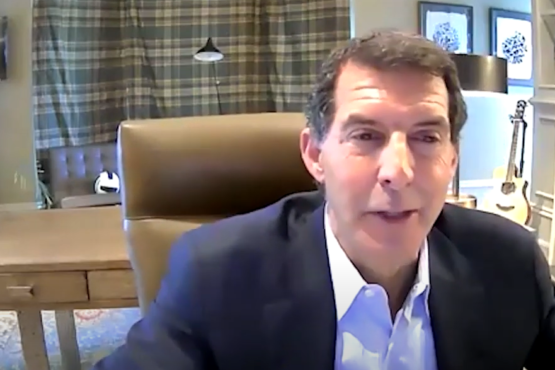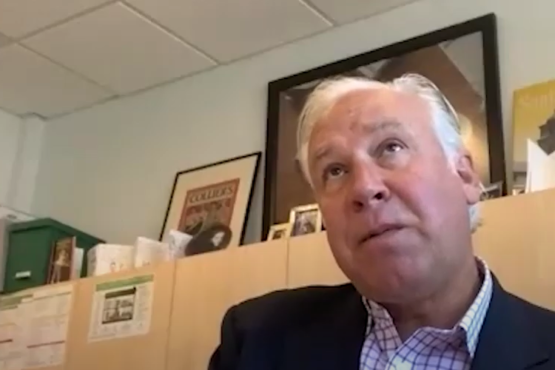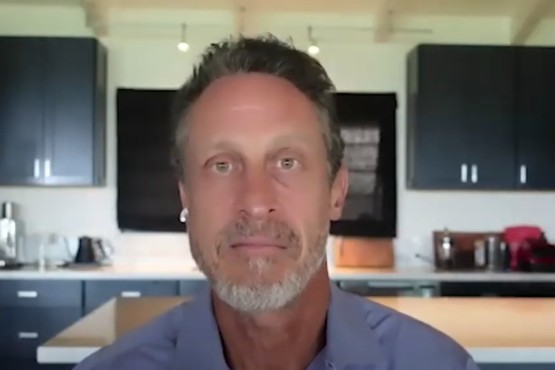I’m excited to kick off our inaugural episode today with one of the smartest minds in healthcare, Dr. Toby Cosgrove. But before we dive in, I want to thank our sponsors. A Second Opinion is powered by MEDHOST, a trusted EHR for healthcare facilities. We’re also brought to you by the Blue Cross Blue Shield Association. In every community and every state, Blue Cross and Blue Shield is solving America’s healthcare challenges, breaking down barriers, preventing disease, opening doors to care for the health of America.
Now let’s turn to the episode. Dr. Toby Cosgrove is an acclaimed cardiothoracic surgeon by training, but later in his career took on the daunting challenge of running the Cleveland Clinic, one of our nation’s preeminent centers of healthcare. His leadership as president and CEO ushered in the most successful years in Cleveland Clinic history, seeing it ranked as the number one hospital in America. Now he’s taking on a new challenge as the executive advisor to the Google cloud in healthcare and life sciences team.
Bill Frist: Toby is a longtime friend, and in our conversation shares some fantastic insights into leadership and what the future of medicine and hospital care will look like. And now, please join me and our guest for a second opinion.
Bill Frist: Toby, your years in cardiac surgery and my years in cardiac surgery, we spent most of our careers actually in operating rooms, focused as physicians. And as you and I both travel around the country, one of the biggest issues is physician burnout. People at 45 years of age, 50 years of age said, “I’m fed up. I’m just going to leave the profession.”
Bill Frist: Give us a little bit of history on the physician burnout, why it evolved. Is there anything we can do about it today in terms of altering that course, which would destroy the greatness of American healthcare?
Toby Cosgrove: Yeah, I don’t think there’s any question about burnout is a major issue in doctors right now across the country. It is 50% of physicians, and it varies by specialty and by age. But I think you have to go back and look at what’s changed and why the doctors that we knew growing up were so enthusiastic, and now that’s become very different. And I really point to, I think four things.
Toby Cosgrove: I think first of all, the loss of autonomy. Doctors used to be able to practice all by themselves, and now in order to achieve what they need to achieve, they have to be dependent upon a lot of other people. I think the second thing was the Affordable Care Act, which began to put quality metrics in. Doctors were not used to being measured around their quality or their outputs or results, and that was a shock for them. Third factor, I think is clearly the electronic medical record. They’ve been not only turned into typists, and they have a tremendous number of things that they have to fill out. They don’t like that, I don’t blame them, and patients don’t like it. And the fourth thing is the explosion in knowledge, and just huge amounts of knowledge that they’re expected to get their heads around. As far as doctors are concerned, there are now 5,300 medical journals putting out 800,000 articles a year. Nobody can keep up with all of that.
Bill Frist: No, no.
Toby Cosgrove: So what can we do about it, I think is a $64,000 question. We’re not going to be able to roll back autonomy. We’re not going to be able to roll back the Affordable Care Act. The amount of knowledge is going to continue to explode. The electronic medical record, we can really begin to do something for, and I think as far as electronic medical record is concerned, I looked for natural voice recognition to be the technology that helps that. And in the meantime, scribes and various remote scribes are helping physicians.
Toby Cosgrove: I think we are trying to take as much work away from physicians as we possibly can by having other people work at the height of their licensure, nurses, technicians, etc. We have also brought in things like Dragon for dictation. We have hired a bunch of pharmacists to do refills. We have insisted that doctors take one day a year to go get their physicals and take care of themselves.
Bill Frist: Take care of themselves, yeah.
Toby Cosgrove: We’ve put together opportunities for doctors to come to socialize with each other and get to know each other, which in a big organization is a problem. We’ve put together town halls where they can talk about their issues and bring them to the fore in a non-threatening sort of way. And by the way, this is not just docs, this is all the way across healthcare. Everybody’s stressed out.
Bill Frist: The nurses, the ancillary personnel. Because those same big trends with autonomy and increased regulatory burden. You look at the data today, and for a doctor working in an emergency room, there’s about 2.4 hours of administrative-type work, a lot of which falls on the doctor’s shoulder. That regulatory administrative burden can be simplified. So just listening to you, I see a couple of elements of some positive trends.
Bill Frist: As we develop better and better parallel computing and super computing, use of big data devices in our pockets, that knowledge, which used to be in your head in my head when we first started, now with the explosion we don’t have. And then the second is things like voice recognition, there are tools that are available now that weren’t available five years ago. But it used to be a doctor had all that knowledge in their head. How has that changed today, that explosion of knowledge? Where do physicians get their information? How do they share it? Are there good trends, positive trends there?
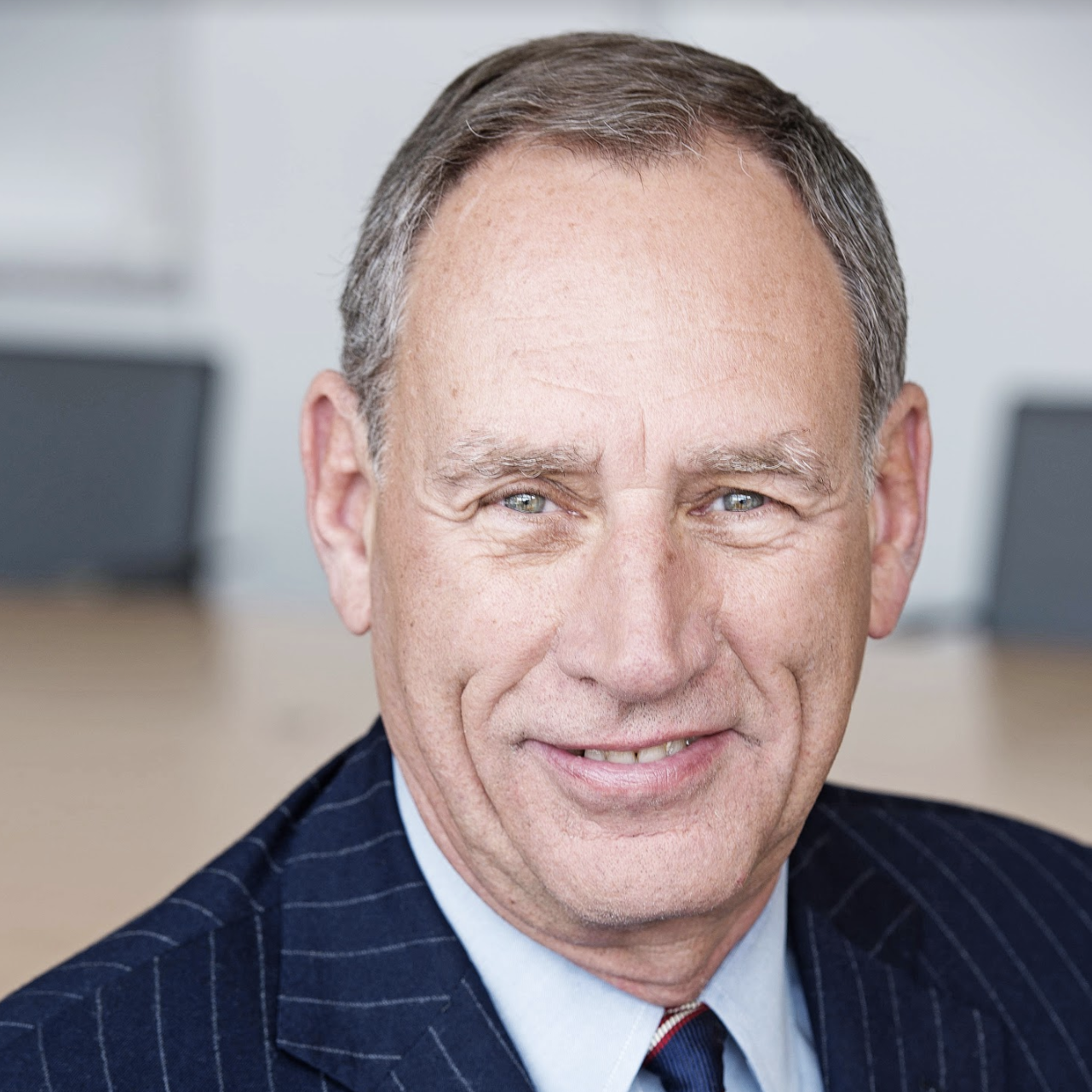
Toby Cosgrove: Let’s take cardiac surgeons. We looked at how many people touch a cardiac surgical patient going through the Cleveland Clinic. It turns out it’s 120 different individuals touch on a single patient. That’s why the team has become so big and the knowledge is so great.
Toby Cosgrove: I think one of the things that are really helping people is communications. We think about the number of ways we have to learn now, tremendous number of opportunities electronically. You don’t have to go and watch a surgeon perform something anymore. They used to travel around to see how they did it. Now you can watch them. And those sorts of things have really changed how knowledge can be spread.
Toby Cosgrove: Unfortunately, it hasn’t been embraced rapidly enough so that it has a major effect on innovation and an acceptance of new technology as fast as you’d like to see it. I hope it will someday.
Bill Frist: Yeah. We’ve talked a lot about how we used to be trained and how the physicians of today should be trained. And it used to be trained … we had our people who are two or three years ahead of us training us, and we’d work all the way through the system. What does that do to creativity of a physician, and then how is it different today or how can we construct a system today that can change that to perpetuate the creativity that a lot of kids go to medical school with, but which is kind of wringed out of them?
Toby Cosgrove: Well, I think we select people not because they’re particularly creative, but they get through organic chemistry. And they get into medical school and memorize for four years, and then become house officers and do what the house officer ahead of them tells them how they ought to do it. And then become staff and they do what the chief of staff tells them to do. And all of a sudden at 45, they emerge and all they’ve done is followed the prescribed paths. And I think that’s a real issue for us.
Toby Cosgrove: The question is how do we allow physicians to be more accepting of new technologies? And I think one of the ways that we can do it is we can teach them to be more reliant upon the team so that they don’t have to do everything themselves, and that allows them to have a broader approach, more empathetic, more opportunities to learn outside. And that’s going to require a rethinking of who delivers what capabilities.
Toby Cosgrove: Some places in the world, for example, all the colonoscopies are done by a nurse. Think of what that would do to the practice of gastroenterology. They’d be quite different sort of people.
Bill Frist: And having everybody distribute the work, which in the past has not been distributed according to their licensing and what is both the most effective but also safest for the patient. That’s certainly a trend there. Cleveland Clinic is, under your leadership, initiated, but it’s coming forth with a new medical school. How is that going to train that physician for today’s world?
Toby Cosgrove: Yeah. What we realize is that healthcare has become, instead of an individual sport, it’s become a team sport. And doctors were essentially trained to be the center of their universe and the universe around health care. And I think that’s part of the change in the mindset, because there’s so much that is required, the doctor just can’t do it all.
Toby Cosgrove: So we want to teach them team play. So we have put together a new health education campus, which is bringing into the same building, medical students, nursing students, dental students, PA students, ultimately social workers and healthcare IT and healthcare finance people, all learning together. I think that that will begin to change their approach to team play.
Toby Cosgrove: The other thing we’ve tried to do is we are bringing in as much new technology as we can. For example, we’re bringing in HoloLens. And HoloLens, we’re going to teach anatomy now without a cadaver. Can you imagine seeing all the pathways in the brain in hologram, as opposed … and you can’t see them in a gross anatomy. So you’ve got ways to learn now that are just amazing. You’re going to walk around to heart, put your head inside it and have a look around. Pretty cool.
Bill Frist: So you’ve got this technology, but again you started all that with the basic empathy, communication skills, understanding, all of that wrapped up in this team-based approach where clearly medicine has historically been disease by disease or organ by organ, but a team-based, more holistic approach clearly is going to be the answer in a more value-based world.
Bill Frist: Let me switch gears a little bit. You have done more heart surgery than any heart surgeon that I know in the world, and I know most of the heart surgeons there. So you’ve done more than anybody. You’ve run the greatest hospital in America. And I’m always careful when I say that, but among the greatest repeatedly. But you have, as a physician, run that hospital and the system. Now you’re shifting to a world of data and analytics and information technology with your formal association with Google Cloud.
Bill Frist: Put that in perspective. Why? Why are you focusing today in this world of exponential data and how we use that data in healthcare?
Toby Cosgrove: When I came to the Cleveland Clinic, we had what we call the Cardiovascular Research Institute. We recorded all the cardiac surgical patients, and we followed them every five years, and we learned an enormous amount. It changed the practice of cardiac surgery in the United States and around the world.
Toby Cosgrove: Now we’ve got all this data, and we’ve got an opportunity to learn from it. But we have to have the tools to both store it and then analyze it. And to me, the cloud is one of the places where these huge amounts of data are ultimately going to reside, and AI and machine learning are going to be the things that are going to help us manage and learn from these enormous datasets.
Toby Cosgrove: I think it will ultimately improve the efficiency of healthcare. It’ll be predictive. I think it has the opportunity to improve the quality. I am excited about trying to direct those enormous resources that a company like Google has. We talked earlier, Google has got 35,000 engineers working for them. And to take those resources and begin to direct them at all this huge amounts of information that we have and try to reduce the effort that individual physicians have to exert, give them the tools. Not going to replace them, people shouldn’t be afraid that things are going to replace them. It’s going to hopefully make their lives easier and their patients’ care better.
Bill Frist: And so the world of artificial intelligence, of machine learning, of deep mind or deep think, I look at it as a subset, one of the other, artificial intelligence being the larger sphere, and inside that the machine learning, and inside of that the deep mind, deep think.
Bill Frist: Give me a couple of examples of what are exciting in that world and how it might be translated ultimately, or even today, down to benefiting that individual patient within a family that has a healthcare need, or on the prevention side.
Toby Cosgrove: I’ve seen a couple of things that really stood out. I’ve seen natural voice recognition. They can tell you whether you’re on drugs or not just from your voice. I have seen a app that will do a retinal scan and make 60 different diagnoses from a retinal scan. I’ve seen the ability to predict by matching your characteristics with tens of thousands of other patients about what the right drug for you is as far as your hypertension is concerned. These are the sort of things that I think would be enormous benefits to patients and to physicians.
Toby Cosgrove: I’ve also seen million patients’ payments from a company be able to be analyzed and looked at a particular disease set, and figure who’s getting care and how efficient it is and how much it costs over a period of time. Pretty exciting stuff. As you develop a model for doing that, then you begin to apply it not just to one disease process, but to multiple other disease processes.
Bill Frist: I’ve heard you say that for you and I in the academic world, and when we published studies and series on patients, a series of 100 patients or 500 patients was huge, was just unbelievable, and now you just mentioned you can do these studies today with millions and millions of patients.
Bill Frist: I also think your example about the retinal scan for machine learning, there’s a company that I’ve been affiliated with and advised called IDX, and last year it got the first FDA approval for autonomous artificial intelligence for the retinal scan. And so when you go in, you do a scan, instead of going to a specialist and all, you can actually go to the machine itself. But behind that machine, your retinal scan is compared to millions, 6 million other scans that the machine is constantly learning, for diabetes. And where there are 30 million people, diabetics, a quarter of them have some sort of retinal disease, and 24,000 will go blind each year. It is clearly life changing, and I’ve heard you’d use examples of that retinal scan, and I think that really does make it real.
Bill Frist: Physician leadership. There’s a huge trend in America today to … today, unlike even five years ago, to turn back to physicians, to participate in the business community, to the world of innovation, to leading both healthcare systems, but outside healthcare systems, much larger sectors themselves. You have led in cardiac surgery, you have led in hospital administration, you’ve led in a systems approach, worldwide expansion of healthcare systems, and now you’re in the Google Cloud space.
Bill Frist: From the leadership standpoint, physician leadership, what are some principles and observations that you’ve made over the years?
Toby Cosgrove: When I realized and began to think about leadership, when I became CEO, I realized I was totally unprepared for it.
Bill Frist: You were CEO, you were a cardiac surgeon, you did an internship residency, fellowship in the military for a year, then you did cardiac surgery for what, intensively-
Toby Cosgrove: 30 years.
Bill Frist: 30 years, every day, four cases a day. How many cardiac cases did you do?
Toby Cosgrove: 22,000.
Bill Frist: 22,000 cardiac cases with those hands, one-on-one, improving. And then all of a sudden you became CEO of the Cleveland Clinic. So take it from there.
Toby Cosgrove: I was unprepared for it. So I had to try an OJT. That included finding people who I thought were great leaders and attaching myself to them, going in and trying to learn, sitting up at night reading books on leadership and innovation, etc. And I remember at one point, my wife finally said, “Don’t you think you’ve read enough books on leadership? Come on down here and talk to me.”
Toby Cosgrove: I think it’s a constantly changing science, if you will. So I thought that I really needed to prepare people to take my position when it was time for me to step aside. And so every year that I would give the board a list of half a dozen people that I thought could be my successor. And it changed over time. But then I said, “Okay, how are we going to prepare them?”
Toby Cosgrove: And I looked around at see how people got prepared and what sort of model and who did it well and who didn’t. So I’ve settled on what I thought organization did really well was the military. I mean they’ve been at it for hundreds of years, developing their generals and their leaders at every level. And the way they did it is they gave people graded responsibility, and then a little education and then greater responsibility. They’d send them back to school again, war college or Harvard or wherever they sent them. And they kept educating them and giving them more responsibility. And some people did well, some people liked it, some people didn’t like it. And gradually, the people who emerged at the top are pretty impressive individuals.
Toby Cosgrove: So I followed that model, and now we have 250 doctors that are in some sort of leadership position. I think that leadership needs to go not just amongst the physicians, but across the organization. So we’ve now got a leadership essentially academy for the Cleveland Clinic, to develop leaders at all stages. And the hardest thing that I did was find people who are capable of stepping up and leading, and they needed a couple things that are really important.
Toby Cosgrove: I don’t think you can be a leader if you can’t communicate. There’s a lot of ways to communicate and you have to work on all of them. And you’re never as good as you want to be at doing those, by the way. That’s embarrassing to watch yourself. And the second thing is you have to be able to communicate with people, emotional intelligence, to meet people where they are, to be able to put yourself in their shoes. The higher that you rise in an organization, the more important that emotional intelligence is.
Bill Frist: Did you find being a physician where you did have to listen to patients and you did have to listen to others and you did … you were getting ready to stop their heart, totally circulate over in a machine, start it again, all that’s the technical part. But the basic empathy up front did start with sitting down with the patient. Did that help?
Toby Cosgrove: I was a disaster. I got asked at the Harvard Business School … I was told that a young lady there wasn’t going to bring her patient to me because they heard I didn’t have empathy. So I was brought up short, and so I went back and looked at my career. And I had started at Boston Children’s Hospital, and one day as a medical student, we lost five children in cardiac surgery. In Mass General, when I was a resident, the mortality rate approached double digits. It now is 1% or less.
Toby Cosgrove: So I had spent my entire life in the operating room, perfecting my trade, spending my time developing valves and changing techniques, and I’d become a technician. And now I realized that we had to something different. I decided we had to change the organization. And so I appointed a C-level individual, chief experience officer, and we began to look at all the things that are about a hospital.
Toby Cosgrove: If you look at it, there are really three things that go into a successful experience. Obviously the clinical. The second is the physical experience. And the most difficult is the emotional experience. And so we worked forever on the clinical experience. We worked on the physical work by changing the architecture, getting gowns that were designed by Diane von Furstenberg to cover yourself completely.
Toby Cosgrove: Then we had to work on the emotional. So we took all of the Cleveland Clinic employees and we put them around tables for half a day and talked about the Cleveland Clinic experience. And out of that they got a badge that said I’m a caregiver. And so everybody, we changed the name of everybody who worked in the Cleveland Clinic to a caregiver. They’re not just a doctor and secretary, everybody’s a caregiver. And that process, over about five years, took us from the lowest rating H-cap scores of hospitals with more than a thousand beds, to the highest.
Bill Frist: So it’s changeable.
Toby Cosgrove: So it’s changeable. And we really change the empathy of the organization. And it’s a nicer place now. And people are friendlier with each other, patients are happier. I think the care is even better.
Bill Frist: Yeah. And that’s what I read looking at those studies, that it really translates down to better care, higher patient satisfaction, a higher quality of life and better wellbeing. But I think the lesson for at least me is that, in listening to you, of progressing for leadership, and then getting training, that no matter where you are, you can be trained. A lot of us don’t want to put our vulnerabilities out there, but work it hard, get trained, work it hard, get retrained or trained in a different area. And then the fact that you can institutionally address something as intimate as emotion and empathy, that you can do at a institutional level, is I think the lesson that we can all take away with us.
Bill Frist: Toby, thank you very much again, appreciate everything you’ve done for humanity, continue to do for humanity, and look forward to having many more discussions just like this. Appreciate it.
Toby Cosgrove: Been my pleasure. Thank you.
Bill Frist: Appreciate it.
Bill Frist: This episode of A Second Opinion was produced by Todd Schlosser, the Modus Creative Group team and Snapshot Interactive. You can subscribe to A Second Opinion on Apple Podcast or wherever you are listening right now. And be sure to rate and review A Second Opinion so we can continue to bring you great content. You can get more information about the show, it’s guest and sponsors at secondopinionpodcast.com.
Bill Frist: Thank you again to our sponsors, MedHost and the Blue Cross Blue Shield Association. Be sure to join us for our next episode with Senator Lamar Alexander, who leads the Senate’s committee on health, and is one of the most effective bipartisan negotiators in Congress.
Bill Frist: Thank you for joining us for A Second Opinion, engaging at the intersection of policy, medicine, and innovation.

